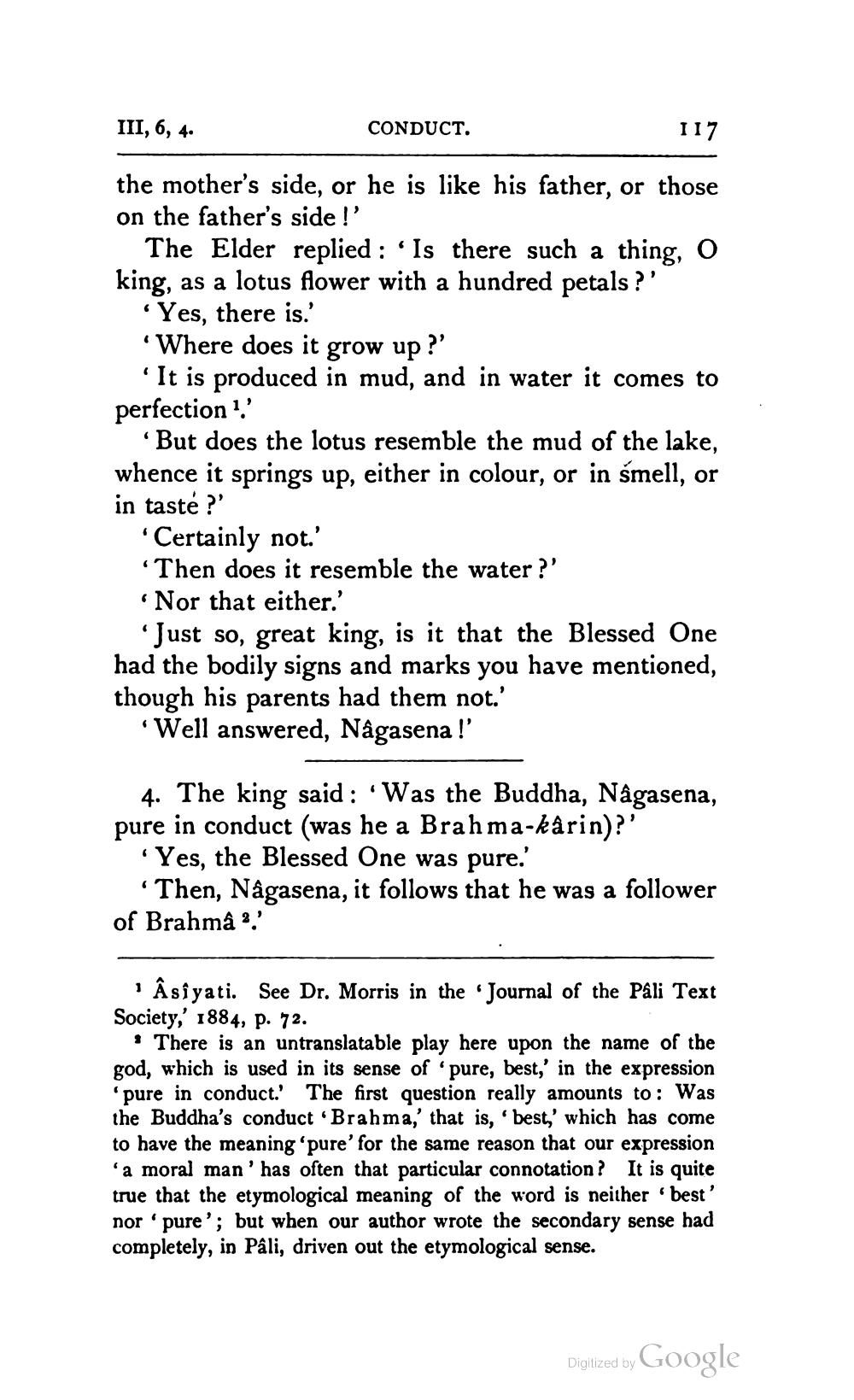________________
III, 6, 4.
CONDUCT.
117
the mother's side, or he is like his father, or those on the father's side !!
The Elder replied: 'Is there such a thing, O king, as a lotus flower with a hundred petals ? ' “Yes, there is.'
Where does it grow up ?' 'It is produced in mud, and in water it comes to perfection?'
But does the lotus resemble the mud of the lake, whence it springs up, either in colour, or in smell, or in tasté ?'
Certainly not.' ‘Then does it resemble the water ?' Nor that either.'
Just so, great king, is it that the Blessed One had the bodily signs and marks you have mentioned, though his parents had them not.'
Well answered, Nagasena !'
4. The king said : Was the Buddha, Nagasena, pure in conduct (was he a Brahma-kårin)?'
Yes, the Blessed One was pure.' “Then, Nâgasena, it follows that he was a follower of Brahmâ?'
iâsîyati. See Dr. Morris in the Journal of the Pali Text Society,' 1884, p. 72.
: There is an untranslatable play here upon the name of the god, which is used in its sense of pure, best,' in the expression
pure in conduct.' The first question really amounts to: Was the Buddha's conduct Brahma,' that is, best,' which has come to have the meaning 'pure' for the same reason that our expression 'a moral man' has often that particular connotation? It is quite true that the etymological meaning of the word is neither best' nor 'pure'; but when our author wrote the secondary sense had completely, in Pâli, driven out the etymological sense.
Diglized by Google




